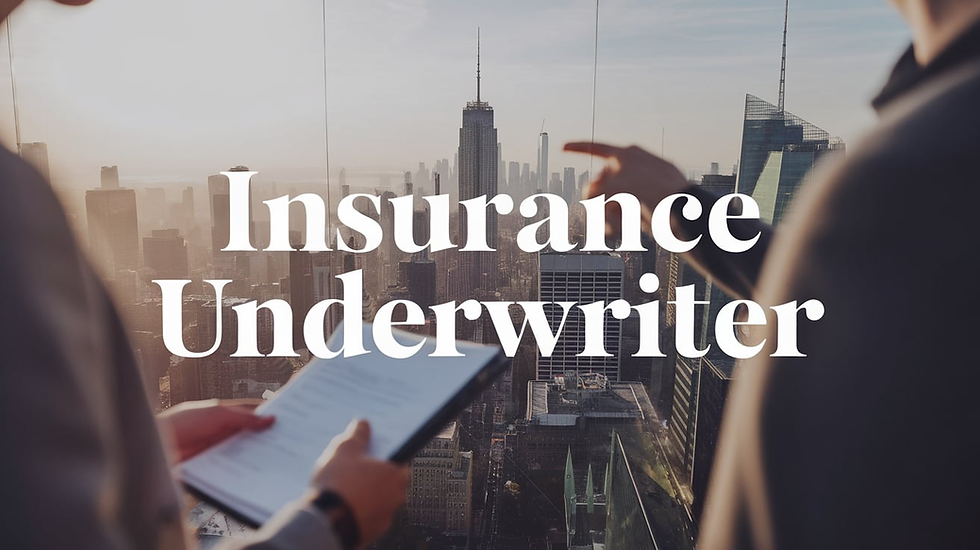Business Automobile Policy (BAP): A Complete Guide
- Sofia Müller

- Sep 1, 2025
- 4 min read
Many businesses depend on vehicles to operate—whether it’s delivering goods, visiting clients, or transporting employees. But commercial vehicle risks are very different from personal car insurance.
That’s why companies use a Business Automobile Policy (BAP). This type of insurance protects businesses from financial losses that come from accidents, damages, or liability involving company-owned or leased vehicles.
Whether you run a small firm with one delivery van or a large corporation with a fleet of trucks, a BAP ensures you’re covered against risks that personal auto insurance won’t handle.

What is a Business Automobile Policy (BAP)?
A Business Automobile Policy (BAP) is a type of commercial insurance designed for companies that use vehicles for business purposes. It protects against:
Liability – Covers damages or injuries you cause to others.
Physical Damage – Covers damage to business vehicles.
Medical Payments – Covers medical costs for injuries.
Uninsured Motorist – Protects against accidents caused by uninsured drivers.
Unlike personal auto insurance, a BAP is tailored for vehicles used in daily operations, ensuring both the company and employees are protected.
Why Do Businesses Need a BAP?
Personal auto insurance is not enough when vehicles are used for commercial purposes. A BAP is necessary because:
Higher Risk – Business vehicles are on the road more often, increasing accident chances.
Legal Requirement – Many states require commercial coverage for business vehicles.
Financial Protection – Without it, businesses could face lawsuits or repair costs.
Employee Coverage – Protects drivers and passengers during business activities.
For example, if your delivery van causes an accident, personal insurance may deny the claim, but a BAP will cover it.
What Does a BAP Cover?
A Business Automobile Policy can be customized to fit different business needs. Common coverages include:
Owned Autos – Vehicles the business owns.
Hired Autos – Vehicles rented or leased by the business.
Non-Owned Autos – Employee-owned vehicles used for work purposes.
Comprehensive Coverage – Protects against theft, fire, or vandalism.
Collision Coverage – Pays for damages from accidents.
This flexibility allows small and large businesses to tailor policies to their risk level.
Types of Vehicles Covered Under BAP
A BAP isn’t limited to just cars—it can cover a wide range of business vehicles:
Passenger cars used by sales teams.
Delivery vans and service vehicles.
Trucks, tractors, and trailers.
Specialty vehicles like construction equipment (if driven on public roads).
This wide coverage makes BAP essential for almost any industry that relies on transportation.
Benefits of a Business Automobile Policy
Complete Protection – Covers liability, property damage, and injuries.
Flexibility – Customizable for different vehicle types and uses.
Peace of Mind – Ensures compliance with legal requirements.
Business Continuity – Prevents large financial losses from disrupting operations.
For business owners, a BAP is not just insurance—it’s a safety net for daily operations.
Limitations of a Business Automobile Policy
While BAPs are comprehensive, they have limitations:
Exclusions – Intentional damage, racing, or personal use may not be covered.
Premium Costs – More expensive than personal auto insurance.
Policy Complexity – Requires careful customization to avoid gaps.
Geographic Limits – Some policies may not cover international use.
These factors make it important to review and tailor the policy with an insurance expert.
Example of a BAP in Action
Imagine a catering company using vans to deliver food. If one of the vans hits another car, causing injuries, the BAP will cover medical costs, property damage, and even legal fees. Without a BAP, the company could face thousands in costs and lawsuits.
Conclusion
A Business Automobile Policy (BAP) is essential for companies that use vehicles in their operations. It protects against liability, damages, and financial losses that personal auto insurance cannot cover. While it comes with higher premiums and policy complexity, the protection it offers makes it a vital part of risk management. For any business relying on vehicles, a BAP ensures safety, compliance, and long-term stability.
FAQs
What is a Business Automobile Policy (BAP)?
A Business Automobile Policy is commercial insurance that protects companies using vehicles for work. It covers liability for accidents, property damage, medical expenses, and even uninsured motorists. Unlike personal auto insurance, it’s designed for vehicles used in daily business operations, making it essential for firms that rely on transportation.
Who needs a BAP?
Any company that owns, rents, or uses vehicles for business needs a BAP. This includes small firms with a single delivery car, contractors with work trucks, or large corporations with fleets. If employees use their own cars for work, businesses can also add non-owned auto coverage under the policy for protection.
What vehicles are covered under a BAP?
A BAP covers a wide range of vehicles used in business operations, such as passenger cars, delivery vans, trucks, trailers, and even specialty equipment driven on public roads. Coverage can extend to owned, rented, or employee-owned vehicles, depending on the options chosen in the policy. It’s highly customizable for business needs.
How does a BAP differ from personal auto insurance?
Personal auto insurance covers vehicles for private use, while a BAP is specifically designed for commercial operations. Business vehicles face higher risks due to frequent use, carrying goods, or transporting employees. Without a BAP, personal auto policies may deny claims if the vehicle was being used for business purposes.
What are the benefits of a BAP?
The main benefits include comprehensive protection against liability, accidents, and damages; flexibility to cover different types of vehicles; compliance with legal requirements; and financial security for businesses. It helps prevent lawsuits or unexpected costs from disrupting operations. For any company using vehicles daily, a BAP is a crucial insurance solution.



Comments